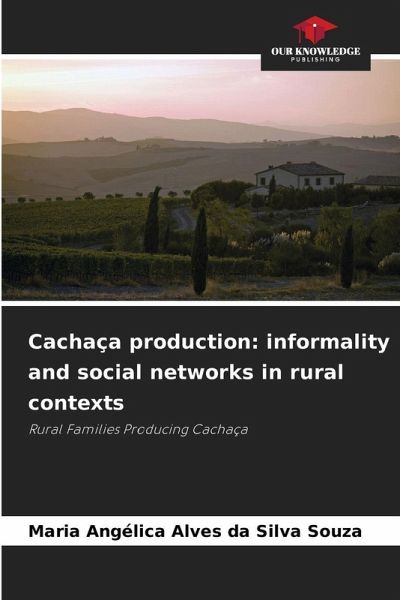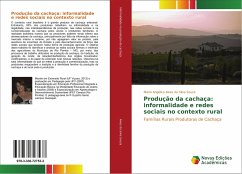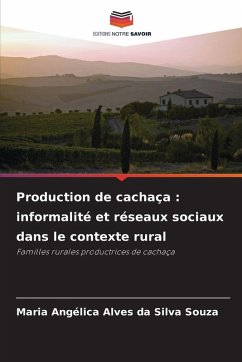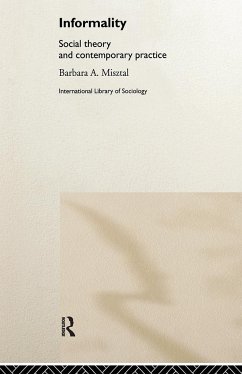
Cachaça production: informality and social networks in rural contexts
Rural Families Producing Cachaça
Versandkostenfrei!
Versandfertig in 6-10 Tagen
30,99 €
inkl. MwSt.

PAYBACK Punkte
15 °P sammeln!
The Brazilian rural context is the major producer of artisanal cachaça. However, 85% of producers work informally and illegally, in production interdependencies, social networks and the commercialisation of cachaça by actors and family producers. The Brazilian reality shows that producers earn less income than cachaça middlemen, mainly due to a lack of information about the domestic and foreign markets, because they do not add value to the product, due to the absence of government incentives, and due to a lack of knowledge about the power of social networks that exist in this form of agricu...
The Brazilian rural context is the major producer of artisanal cachaça. However, 85% of producers work informally and illegally, in production interdependencies, social networks and the commercialisation of cachaça by actors and family producers. The Brazilian reality shows that producers earn less income than cachaça middlemen, mainly due to a lack of information about the domestic and foreign markets, because they do not add value to the product, due to the absence of government incentives, and due to a lack of knowledge about the power of social networks that exist in this form of agricultural production. The objective of this study was to identify and analyse the formal and informal social networks of farmers in the municipality of Rio Pomba, Minas Gerais, through: the work processes used in cachaça production; tradition; income generation; the relationship/interference of supervisory and certification bodies; and the role of rural extension in these relationships. Total informality was observed in relation to production and commercialisation, but producers safeguard the tradition and family identity of cachaça production and the place where it is produced.












